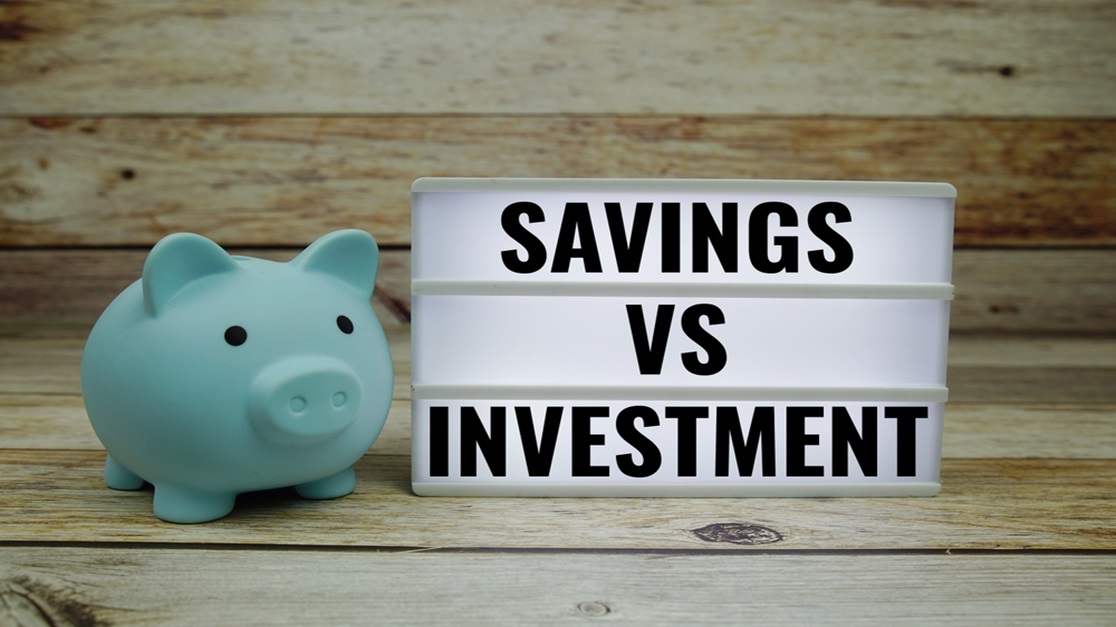Savings Account vs Investment Account: Where Should You Keep Your Money?
Disclaimer: Ujjivan Small Finance Bank does not offer Investment Accounts except DEMAT Account in partnership with SMC Global Securities Limited. This blog is written for educational purposes only.
July 03, 2025

Saving money or investing it—this is a common question among individuals who are looking to secure their financial future. While both options have their benefits, they serve different purposes. In this article, we will compare savings accounts and investment accounts to help you understand which one is right for you and your financial goals.
Let's dive in!
Savings Account vs Investment Account: A Conceptual Overview
Understanding Savings Accounts
Savings accounts are one of the most common ways people save their money. They offer a safe place to store funds while earning a modest interest rate. Here are some key features of savings accounts:
- Low-Risk: Savings accounts are considered low risk because they offer predictable returns and are usually insured by the government up to a certain limit and are protected from market volatilities.
- Liquidity: You can easily access your funds in a savings account whenever you need them.
- Short-term and Long-term Goals: Savings accounts are ideal for short- and long-term financial goals such as building an emergency fund or saving for a vacation or retirement. You can explore high-interest savings accounts here.
Exploring Investment Accounts
Investment accounts, on the other hand, involve putting your money into various assets with the expectation of generating higher returns over the long term. Here's what you need to know about investment accounts:
- Higher Risk: Investments come with higher risk compared to savings accounts. The value of your investments can fluctuate based on market conditions.
- Long-term Goals: Investment accounts are best suited for long-term goals such as retirement planning, buying a house, or funding your child's education.
- Potential for Growth: Unlike savings accounts, investments have the potential to grow your wealth significantly over time. However, this growth comes with volatility and market risks.
Savings Account vs Investment Account: Factors to Consider
1. Determining Your Financial Goals
When deciding between a savings account and an investment account, it's essential to consider your financial goals. Here are some scenarios to help you make the right choice:
Scenario 1: Short-Term Goals
If you have short-term financial goals such as saving for a vacation, buying a new gadget, or building an emergency fund, a savings account is the way to go. Its low-risk nature and easy accessibility make it perfect for short-term needs.
Table 1: Savings Account vs Investment Account - Short-Term Goals
| Criteria | Savings Account | Investment Account |
| Risk | Low | High |
| Return Potential | Moderate | High |
| Liquidity | High | Varies |
| Time Horizon | Short-term (<5 years) | Varies |
Scenario 2: Long-Term Goals
If you're planning for long-term goals like buying a house, saving for retirement, or funding your child's education, an investment account offers the potential for higher returns. Stocks, mutual funds, and real estate can help grow your wealth over the long term.
Table 2: Savings Account vs Investment Account: Long-Term Goals
| Criteria | Savings Account | Investment Account |
| Risk | Low | High |
| Return Potential | Moderate | High |
| Liquidity | High | Varies |
| Time Horizon | Long-term (>10 years) | Varies |
2. Balancing Savings and Investments
While savings accounts are ideal for short-term needs and emergencies, lack of investments can hinder your long-term financial growth. It's important to strike a balance between the two to achieve your financial goals effectively.
3. Choosing the Right Financial Institutions
When it comes to savings accounts and investment accounts, choosing the right financial institution is crucial. Look for institutions that offer competitive interest rates and reliable customer service via customer reviews and feedback online or word of mouth.
Final Thoughts
In conclusion, both savings accounts and investment accounts play an essential role in securing your financial future. Savings accounts are suitable for short-term goals and emergencies, while investment accounts offer the potential for long-term growth. To optimize your financial situation, consider your goals, risk appetite, and time horizon.
If you're just starting out in your savings journey, opening a Savings Account with Ujjivan Small Finance Bank can be a good start. We have a wide variety of Savings Accounts catering to different financial needs - sign up for the one that meets your financial goals. Alternatively, you can browse through Ujjivan SFB product suite - our wide range of financial products are designed to make your financial life better.
Disclaimer:
The contents herein are only for informational purposes and generic in nature. The content does not amount to an offer, invitation or solicitation of any kind to buy or sell, and are not intended to create any legal rights or obligations. This information is subject to updation, completion, amendment and verification without notice. The contents herein are also subject to other product-specific terms and conditions, as well as any applicable third-party terms and conditions, for which Ujjivan Small Finance Bank assumes no responsibility or liability.
Nothing contained herein is intended to constitute financial, investment, legal, tax, or any other professional advice or opinion. Please obtain professional advice before making investment or any other decisions. Any investment decisions that may be made by the you shall be at your own sole discretion, independent analysis and evaluation of the risks involved. The use of any information set out in this document is entirely at the user’s own risk. Ujjivan Small Finance Bank Limited makes no representation or warranty, express or implied, as to the accuracy and completeness for any information herein. The Bank disclaims any and all liability for any loss or damage (direct, indirect, consequential, or otherwise) incurred by you due to use of or due to investment, product application decisions made by you on the basis of the contents herein. While the information is prepared in good faith from sources deemed reliable (including public sources), the Bank disclaims any liability with respect to accuracy of information or any error or omission or any loss or damage incurred by anyone in reliance on the contents herein, in any manner whatsoever.
To know more about Ujjivan Small Finance Bank Products Visit:"https://www.ujjivansfb.in"
All intellectual property rights, including copyrights, trademarks, and other proprietary rights, pertaining to the content and materials displayed herein, belong
to Ujjivan Small Finance Bank Limited or its licensors. Unauthorised use or misuse of any intellectual property, or other content displayed herein is strictly prohibited and the same is not intended for distribution to, or use by, any person in any jurisdiction where such distribution or use would (by reason of that person’s nationality, residence or otherwise) be contrary to law or registration or would subject Ujjivan Small Finance Bank Limited or its affiliates to any licensing or registration requirements.
FAQs
1. Which one is better, a savings account or an investment account?
Both serve different purposes. If you have short-term goals, a savings account is better, but for long-term goals, an investment account may be more beneficial.
2. Can you lose money in a savings account?
Generally, savings accounts are considered safe, and your funds are insured by the government up to a certain limit. However, they may not keep pace with inflation.
3. How much should I save in a savings account?
It is recommended to save at least three to six months' worth of living expenses in a savings account as an emergency fund.
Latest Blogs

Dussehra 2025: How to Win Your Financial Battles with Smart Saving
Dussehra 2025 (also known as Vijayadashami) falls on Thursday, October 2, 2025.

eSIM Scam in India: I4C Warns Mobile Users About Rising Fraud – How to Stay Safe
The Indian Cybercrime Coordination Centre (I4C), a wing of the Ministry of Home Affairs, issued a strong warning to mobile users about the rapid increase in eSIM fraud in India.

How to Link PAN with Aadhaar: Step-by-Step Guide & Consequences of Not Linking
Linking your Permanent Account Number (PAN) with your Aadhaar is no longer just a best practice.

Annual Information Statement (AIS): A Complete Guide for Stress-Free ITR Filing
India’s tax season is in its final stretch.

ITR-1 (Sahaj) Restrictions: Income Sources Not Allowed & Filing Rules
With just a few days left before the 15 September 2025 deadline for filing Income Tax Returns (ITRs) for Assessment Year (AY) 2025-26, many taxpayers are rushing to submit their forms online.





